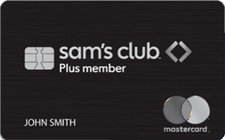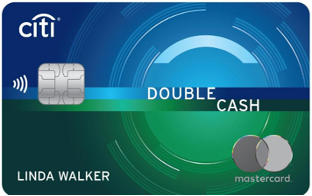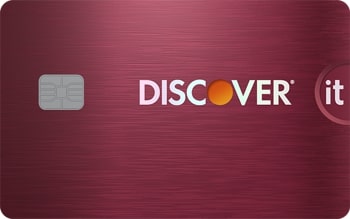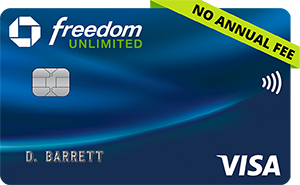Sam’s Club Mastercard Review: Great for Gas and Premium-Tier Sam’s Members
The Bottom Line
3.6
It's worth considering if you're a Sam's Club "Plus" member. But if you're only a "Club"-level member, you won't get any bonus rewards for using it at the store. Other less-complicated cash-back cards may work better for you.


Rates, fees and offers
Rates, fees and offers
Annual fee
$0
Rewards rate
1%-5%
Bonus offer
N/A
Intro APR
N/A
Ongoing APR
APR: 20.40% or 28.40%, Variable APR
Cash Advance APR: 25.40% or 31.40%, Variable APR
Foreign transaction fee
0%
More details from Synchrony Bank
More details from Synchrony Bank
- Earn 5% back in Sam’s Cash on gas and electric vehicle charging stations anywhere Mastercard is accepted (on first $6,000 per year, then 1%).
- Earn 3% back in Sam’s Cash on Sam’s Club purchases for Plus members. Club members earn 1% cash back.
- Earn 3% back in Sam’s Cash on dining and takeout.
- Earn 1% back in Sam’s Cash on other purchases.
- Accepted at Sam’s Club and Walmart® nationwide.
- No annual fee.
- Doubles as your membership card.
- Online account management.
- Contactless pay, just Tap & Go®

Pros and Cons
Pros
No annual fee
Bonus categories
New cardholder bonus offer
Cons
Must be a member/customer
Complicated rewards
Limited redemptions
Requires good/excellent credit
Detailed Review
The Sam's Club® Mastercard® can be a worthy option for certain Sam's Club shoppers who guzzle gas or use EV charging stations, but it's certainly not the most straightforward card out there.
It features one of the highest rewards rates available on fuel purchases, not to mention a solid rate on dining, for an annual fee of $0. It can also offer great rewards for shopping at Sam's Club — but here's where it gets complicated.
To get the card at all, you must be a Sam's Club member, and that does come with a yearly fee of either:
$50 for a baseline "Club" membership. At this tier, the Sam's Club® Mastercard® earns only 1% back on eligible Sam's Club shopping.
$110 for a "Plus" membership. At this tier, the card lets you earn up to 5% back on eligible Sam's Club shopping.
So the question is whether it's worth paying a higher membership fee for better rewards. It may also be a question of how many reward rules and caps you want to deal with, because there are several.
Sam's Club® Mastercard®: Basics
Card type: Store.
Annual fee: $0, but you must be a Sam's Club member. ($50 per year for a Club membership; $110 per year for a Plus membership).
Rewards:
5% cash back (on up to $6,000 spent per year, then 1%) at EV charging stations and eligible gas stations worldwide, including stations at Sam’s Club.
3% back on dining.
1% back on all other purchases.
For Sam’s Club Plus members only: Up to 5% back on eligible Sam’s Club purchases (3% back with the card, plus up to 2% back from the membership tier.)
You can redeem rewards for cash or use them to pay for Sam’s Club purchases made in-store, online at samsclub.com, in the Sam’s Club app, via Scan & Go, or for curbside pickup. Total rewards on the card are capped at $5,000 per calendar year.
Sign-up bonus: Typically N/A, though offers can vary.
APR: The ongoing APR is 20.40% or 28.40%, Variable APR.
Foreign transaction fees: None.
Club vs. Plus: Which Sam's membership tier makes sense for you?
There's a $60 difference between the Club tier ($50 a year) and the Plus tier ($110 a year). To find out whether it's worth paying that difference — and thus reaping the higher rewards rate with the Sam's Club® Mastercard® — consider the math:
The card can give you 4% more in cash back at the Plus level, and $60 divided by 4 cents (or 0.04) is $1,500. If you spend more than that at Sam's Club in a year, it may be worth paying more for a Plus tier.
But that figure is not the "break-even" point on the annual cost of a Sam's Club membership itself:
To break even on a $110 Plus membership, you'd need to spend at least $2,200 on eligible Sam's Club purchases in a year.
To break even on a $50 Club membership, you'd need to spend at least $5,000 on eligible Sam's Club purchases in a year.
Neither of those figures, though, takes into account your spending in the card's other bonus categories (gas, EV charging and dining). So it's worth evaluating where you spend the most before deciding on a membership tier.
Compare to Other Cards
Benefits and Perks
Elevated rewards for Sam's Club Plus members
If you're a Sam’s Club Plus member, the Synchrony Bank-issued Sam's Club® Mastercard® is made for you. You’ll earn a stellar rate of up to 5% cash back on eligible purchases with the retailer. That's a lot of rewards potential for groceries and other household items, and it's in line with what some of the best store credit cards on the market offer for shopping within their walls.
One of the highest rewards rates on gas and EV charging stations
With a 5% cash-back rate on up to $6,000 in gas and EV charging expenses per year, you could earn $300 annually in that category alone, plus 1% on those purchases beyond that cap. And those earnings would be in addition to Sam’s Club member-exclusive prices offered on fuel at select locations. That's a sizable chunk of savings, especially for rideshare drivers, weekend warriors and others who hit the road often.
Appetizing rewards at restaurants
You'll earn a high 3% cash-back rate on dining, which includes things like restaurants, drinking places and caterers. In 2019, the average American household spent $3,526 per year on food outside of the home, according to the U.S. Bureau of Labor Statistics' Consumer Expenditure Survey. If you spent that much at restaurants with the Sam's Club® Mastercard®, you could earn more than $105 annually.
Drawbacks and Considerations
Mediocre rewards for baseline Sam's Club members
Sam's Club gas stations aside, any shopping you do at Sam's (either inside the store or online) will net you only 1% cash back with a baseline Club membership. The Bank of America® Customized Cash Rewards credit card can double that rate while also still delivering a relatively high rate back on fuel purchases. It earns 3% cash back on gas/EV charging or on your choice of one of five other categories, plus 2% back at grocery stores and wholesale clubs (on up to $2,500 in combined choice category/grocery store/wholesale club quarterly purchases). All other purchases earn 1% back.
Too many reward caps and rules
The card's 5% cash-back rate on gas and EV charging is capped at $6,000 in spending annually, and your total rewards-earning ability for all purchases is capped at $5,000 a year. And for Plus members, there's even more to keep in mind:
At the Plus tier, the card itself earns 3% back on qualifying Sam's Club purchases in-store or online — but the additional 2% back via your membership is only on qualifying in-store purchases, not at samsclub.com.
The 3% rate from the card is unlimited, but the 2% rate from the membership is capped at a $500 in rewards per year.
The 2% back from your membership tier is also subject to a $2,000 overall "maximum balance" at any given time. Once you hit that threshold, you stop accruing rewards until you "reduce" that balance by redeeming rewards.
That's a lot of rules and limitations to keep track of. If you prefer no-fuss rewards, the Wells Fargo Active Cash® Card earns 2% cash back on all purchases. That makes it a good card to use at Sam's Club or anywhere else.
How To Decide If It's Right For You
If you have only a baseline Club membership but still want to maximize your Sam's Club shopping, the Sam's Club® Mastercard® card doesn't do much for you. It might still be worth a look if you spend big on gas, EV charging or restaurants, but you'll likely do just as well or better with other cash-back credit cards.
But if you're a Plus member, and if spending at Sam's Club makes up a big chunk of your budget, this card could be a valuable match.
Double the rewards you earn at Sam's
A NerdWallet favorite, this card pays an unlimited 2% cash back on every purchase, everywhere — 1% when you buy something, and another 1% when you pay if off. In other words, this card is twice as rewarding at Sam's Club as the Sam's Club® Mastercard®. Annual fee: $0.
Looking For Something Else?
Methodology
NerdWallet reviews credit cards with an eye toward both the quantitative and qualitative features of a card. Quantitative features are those that boil down to dollars and cents, such as fees, interest rates, rewards (including earning rates and redemption values) and the cash value of benefits and perks. Qualitative factors are those that affect how easy or difficult it is for a typical cardholder to get good value from the card. They include such things as the ease of application, simplicity of the rewards structure, the likelihood of using certain features, and whether a card is well-suited to everyday use or is best reserved for specific purchases. Our star ratings serve as a general gauge of how each card compares with others in its class, but star ratings are intended to be just one consideration when a consumer is choosing a credit card. Learn how NerdWallet rates credit cards.
About the author

Melissa Lambarena
Senior Writer & Content Strategist


